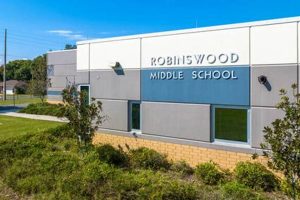Subjects suitable for discussion and argumentation by students in grades six through eight typically encompass current events, social issues, educational policies, and hypothetical scenarios. Examples include the merits of school uniforms, the impact of social media on teenagers, or the ethics of artificial intelligence. These discussions provide opportunities to develop critical thinking, research skills, and public speaking abilities.
Engaging with complex issues through structured argumentation fosters essential skills for academic success and civic engagement. This practice encourages students to analyze diverse perspectives, formulate reasoned arguments, and communicate persuasively. Historically, debate has been a cornerstone of education, dating back to ancient Greece, recognizing its value in developing informed and articulate citizens.
This article will explore a range of suitable subjects for classroom discussions, offering guidance for educators and students seeking engaging and enriching debate experiences.
Tips for Selecting and Developing Strong Debate Subjects
Careful consideration of topic selection and preparation contributes significantly to successful and engaging discussions.
Tip 1: Consider Relevance: Subjects should resonate with students’ lives and current events to foster genuine interest and engagement. Exploring issues directly impacting their daily experiences, such as school policies or community concerns, can enhance motivation and create more meaningful discussions.
Tip 2: Ensure Accessibility: Topics should be accessible to students’ current knowledge and research capabilities. Overly complex or specialized subjects may hinder effective research and understanding. Appropriate complexity ensures students can confidently engage with the material.
Tip 3: Promote Balanced Arguments: Subjects should allow for well-supported arguments on both sides of the issue. This encourages critical thinking and nuanced perspectives, preventing overly simplistic or one-sided discussions.
Tip 4: Encourage Research: Topics should necessitate research to develop informed arguments. This reinforces research skills and encourages students to explore diverse sources of information, promoting deeper understanding.
Tip 5: Foster Critical Thinking: Subjects should challenge students to analyze information critically and formulate well-reasoned arguments. This develops analytical skills essential for academic success and informed decision-making.
Tip 6: Encourage Civil Discourse: Selecting topics that promote respectful dialogue and consideration of diverse perspectives is crucial for fostering a positive learning environment. This encourages students to engage constructively with differing viewpoints.
Careful attention to these guidelines will contribute to productive and enriching debates, developing critical thinking and communication skills while fostering a deeper understanding of complex issues.
By implementing these strategies, educators can create engaging and effective learning experiences that empower students with the skills necessary for informed civic participation and academic achievement.
1. Age-Appropriateness
Age-appropriateness plays a crucial role in the selection of debate topics for middle school students. Cognitive development and emotional maturity vary significantly within this age group (typically ages 11-14). Topics must align with their developmental stage to ensure meaningful engagement and avoid undue stress or confusion. Selecting topics that are too complex or sensitive can overwhelm students, hindering their ability to formulate arguments and participate effectively. Conversely, overly simplistic topics can fail to stimulate critical thinking and result in disengagement. Suitable topics should challenge students while remaining accessible and relatable to their experiences.
For example, debating the intricacies of international trade agreements might be overwhelming for middle schoolers due to their limited background knowledge and the complexity of the subject matter. However, a debate about the merits of school uniforms or the impact of social media on teenagers is more appropriate, as these topics connect directly to their daily lives and experiences. Practical significance lies in fostering a sense of ownership and engagement among students, allowing them to develop critical thinking skills within a comfortable and relatable context. This promotes a deeper understanding of the topic and encourages active participation in the debate process.
Finding the right balance between challenging and accessible is key to selecting age-appropriate debate topics. This balance fosters a supportive learning environment where students can develop their argumentation skills, critical thinking abilities, and public speaking confidence. Selecting relevant and relatable topics allows students to explore complex issues in a way that respects their developmental stage and maximizes learning potential. Addressing complex societal issues through age-appropriate lenses prepares students for informed civic engagement while fostering crucial skills applicable throughout their academic and personal lives.
2. Engaging Subject Matter
Engaging subject matter is paramount to successful middle school debates. Topics must capture students’ interest to foster active participation and meaningful learning experiences. Debate provides a platform for exploring complex issues, developing critical thinking skills, and refining communication abilities; however, these benefits are realized only when students are genuinely invested in the topic at hand. This section explores key facets of engaging subject matter and their impact on effective middle school debates.
- Relevance to Students’ Lives
Topics directly impacting students’ daily experiences resonate deeply, fostering genuine interest and motivation. Debating the merits of later school start times, the impact of social media on adolescents, or the role of technology in education allows students to connect classroom learning with their own lives. This connection increases engagement and promotes a deeper understanding of the issues discussed.
- Current Events and Popular Culture
Integrating current events and elements of popular culture into debate topics captures students’ attention and encourages them to analyze contemporary issues critically. Debates surrounding ethical dilemmas presented in popular young adult novels, the impact of viral trends, or current social justice movements can spark lively discussions and enhance media literacy skills.
- Controversial (but Age-Appropriate) Issues
Introducing age-appropriate controversial issues can stimulate intellectual curiosity and encourage students to consider diverse perspectives. Debates surrounding animal rights, environmental protection, or community service initiatives can foster a sense of civic responsibility and empower students to engage in thoughtful discussions about complex societal challenges. Careful moderation and guidance from educators are essential to ensure respectful and productive dialogue.
- Hypothetical Scenarios and Thought Experiments
Engaging students with hypothetical scenarios and thought experiments can cultivate creativity and critical thinking skills. Debates centered around futuristic technologies, ethical dilemmas in fictional worlds, or potential solutions to global challenges encourage students to think outside the box and develop innovative solutions. This approach fosters problem-solving skills and promotes intellectual exploration within a structured and engaging framework.
By incorporating these facets into topic selection, educators can cultivate a dynamic learning environment where students actively participate, develop essential skills, and gain a deeper understanding of complex issues. Engaging subject matter transforms debates into powerful tools for intellectual growth and civic engagement, empowering students to become informed and articulate citizens prepared to navigate the challenges of the 21st century.
3. Researchable Content
Researchable content forms the cornerstone of effective middle school debate topics. The ability to gather and analyze information from credible sources is crucial for developing well-supported arguments and fostering critical thinking skills. Topics lacking readily available, age-appropriate research materials hinder students’ ability to engage meaningfully with the debate process. This connection between researchable content and effective debating underscores the importance of careful topic selection. For example, a debate about the existence of extraterrestrial life, while intriguing, might lack the accessible, verifiable evidence necessary for middle schoolers to construct robust arguments. Conversely, a debate about the effectiveness of different recycling methods offers readily available scientific studies and reports, enabling students to support their claims with credible evidence. This access to credible information not only strengthens arguments but also teaches students essential research skills applicable across academic disciplines.
The availability of researchable content directly impacts the quality of middle school debates. Students engaging with topics rich in accessible information develop stronger arguments, demonstrate a deeper understanding of the subject matter, and cultivate essential research skills. This understanding translates to more engaging and productive debates, fostering critical thinking and informed decision-making. Furthermore, access to diverse perspectives and credible sources encourages students to analyze information critically and evaluate the validity of different viewpoints. For instance, a debate about the impact of video games on academic performance allows students to explore research studies presenting both positive and negative correlations, encouraging them to weigh the evidence and formulate nuanced arguments. This nuanced understanding of complex issues equips students with the skills necessary to navigate information overload and form informed opinions in an increasingly complex world.
Successful middle school debates hinge on topics that offer ample researchable content. This availability empowers students to develop well-supported arguments, cultivate critical thinking skills, and engage in informed discussions. The practical significance lies in equipping students with the tools necessary for lifelong learning and informed civic participation. Challenges may include ensuring access to reliable resources and guiding students to differentiate between credible and unreliable sources. Addressing these challenges through effective information literacy instruction reinforces the value of research and strengthens the overall educational impact of middle school debates.
4. Balanced Perspectives
Balanced perspectives are essential for effective middle school debate topics. Presenting issues with readily available arguments on both sides fosters critical thinking, nuanced understanding, and respectful discourse. This balanced approach avoids overly simplistic presentations and encourages students to consider diverse viewpoints, essential skills for informed decision-making and civic engagement. Topics lacking this balance can lead to one-sided arguments, hindering the development of critical thinking and potentially reinforcing biases. This section explores the multifaceted nature of balanced perspectives within the context of middle school debate topics.
- Promoting Open-Mindedness
Exposing students to diverse viewpoints encourages open-mindedness and a willingness to consider alternative perspectives. For example, a debate about the benefits and drawbacks of school uniforms allows students to explore arguments for individual expression versus promoting a unified school environment. This fosters empathy and understanding of differing opinions, crucial skills for navigating complex social issues and engaging in constructive dialogue.
- Developing Critical Analysis Skills
Analyzing arguments from multiple perspectives hones critical analysis skills. A debate on the impact of technology on learning requires students to evaluate evidence supporting both the enhancing and hindering effects of technology in education. This strengthens their ability to discern credible information, identify biases, and formulate informed conclusions based on evidence rather than preconceived notions.
- Encouraging Respectful Dialogue
Balanced perspectives create a foundation for respectful dialogue. When students recognize the validity of opposing viewpoints, they are more likely to engage in respectful discourse, even when disagreeing. A debate about the ethics of animal testing encourages students to consider both animal welfare and the potential for scientific advancements, fostering empathy and respect for differing values.
- Fostering Deeper Understanding
Exploring multiple viewpoints leads to a more nuanced and comprehensive understanding of complex issues. A debate about the role of government in regulating social media requires students to consider arguments for free speech versus protecting online safety. This deeper understanding equips them with the knowledge necessary to engage in informed discussions and contribute meaningfully to civic discourse.
Incorporating balanced perspectives into middle school debate topics is crucial for fostering critical thinking, promoting respectful dialogue, and developing a deeper understanding of complex issues. This balanced approach prepares students for informed civic engagement and empowers them to navigate the complexities of an increasingly interconnected world. Selecting topics with inherent balance ensures that debates become valuable learning experiences, fostering essential skills applicable far beyond the classroom.
5. Promotes Critical Thinking
Critical thinking, the objective analysis of information to form a judgment, is a crucial skill fostered through middle school debate topics. Engaging in structured arguments necessitates analyzing evidence, identifying biases, and constructing logical reasoning, thereby developing analytical skills essential for academic success and informed decision-making. This section explores the multifaceted connection between critical thinking and appropriate debate subjects.
- Evaluating Evidence
Debate topics necessitate evaluating the validity and relevance of evidence presented to support arguments. For example, a debate about the environmental impact of plastic straws requires students to analyze scientific studies, statistical data, and expert opinions to form informed conclusions. This process strengthens their ability to discern credible sources from biased or unreliable information.
- Identifying Biases
Debates expose students to various perspectives, challenging them to identify biases in arguments presented by both sides. A debate about the effectiveness of different advertising strategies requires students to recognize how marketing techniques can influence consumer behavior and potentially manipulate emotions. This awareness of bias equips them to critically evaluate information presented in various contexts, including media, advertising, and political discourse.
- Constructing Logical Arguments
Effective debating requires constructing logical, well-supported arguments. For instance, a debate on the merits of mandatory community service encourages students to develop reasoned arguments supported by evidence and logical reasoning. This process strengthens their ability to organize thoughts coherently, articulate ideas persuasively, and defend their positions with sound reasoning.
- Formulating Informed Judgments
The process of researching, analyzing evidence, and engaging in structured arguments culminates in forming informed judgments. A debate about the ethical implications of artificial intelligence requires students to consider various perspectives and evaluate the potential consequences of AI development. This process equips them with the critical thinking skills necessary to make informed decisions about complex issues impacting their lives and society.
Cultivating critical thinking through well-chosen middle school debate topics equips students with essential skills applicable far beyond the classroom. These skills empower them to analyze information objectively, form informed opinions, and engage in constructive dialogue about complex issues. The emphasis on evidence-based reasoning and logical argumentation prepares students for the challenges of higher education, future careers, and informed civic engagement.
6. Encourages Civil Discourse
Civil discourse, the engagement in respectful and productive dialogue despite differing viewpoints, forms an integral component of effective middle school debate topics. Structured debate provides a platform for students to practice expressing their opinions respectfully, listening actively to opposing arguments, and engaging in constructive conversations about potentially contentious issues. This fosters a positive learning environment where students develop essential communication and interpersonal skills crucial for navigating disagreements in a productive manner. Selecting topics that inherently encourage respectful dialogue is paramount. For instance, debating the merits of different community service projects fosters collaboration and understanding, while a debate about highly sensitive political issues might escalate into unproductive arguments. The connection between topic selection and the potential for civil discourse underscores the importance of careful consideration when choosing debate subjects for middle school students.
Practical applications of fostering civil discourse through debate extend beyond the classroom. Students develop skills applicable in various social settings, including interactions with family, friends, and community members. Learning to articulate opinions respectfully, listen actively, and engage in constructive dialogue prepares students for future leadership roles and informed civic participation. Real-life examples illustrate this connection: students participating in debates about school policies learn to advocate for their interests while respecting the perspectives of administrators and fellow students. Similarly, engaging in debates about community issues equips students with the skills necessary to participate in local government meetings and contribute meaningfully to civic discussions. This practical application reinforces the value of civil discourse as an essential skill for navigating an increasingly complex and interconnected world.
Civil discourse, fostered through carefully selected middle school debate topics, plays a pivotal role in developing well-rounded individuals prepared for informed civic engagement. Challenges may arise in managing emotionally charged topics and ensuring respectful interactions. Addressing these challenges through clear guidelines for respectful communication and effective moderation strategies reinforces the importance of civil discourse. This understanding underscores the broader educational goal of preparing students not only for academic success but also for active and responsible participation in a democratic society. Cultivating these skills in the formative middle school years contributes significantly to developing future generations capable of engaging in productive and respectful dialogue despite differing viewpoints.
7. Relatable to Students
Relatability plays a crucial role in the effectiveness of middle school debate topics. When students can connect with the subject matter on a personal level, their engagement increases, leading to more invested research, more passionate arguments, and a deeper understanding of the issues at hand. This connection fosters a more meaningful learning experience and encourages active participation in the debate process. Topics distant from students’ lives or experiences can lead to disinterest and superficial engagement, hindering the development of critical thinking and communication skills.
- School-Related Issues
Topics related to the school environment, such as dress codes, homework policies, or extracurricular activities, resonate deeply with middle schoolers. These issues directly impact their daily lives, fostering a sense of ownership and investment in the debate. For example, debating the merits of a later school start time allows students to draw upon their own experiences with sleep schedules and academic performance. This personal connection enhances their understanding of the complexities surrounding the issue and encourages them to formulate more compelling arguments.
- Social and Peer Dynamics
Navigating social dynamics and peer relationships forms a significant aspect of middle school life. Debate topics addressing issues like cyberbullying, peer pressure, or social media usage allow students to explore these complexities within a structured and supportive environment. Debating the impact of social media on self-esteem, for example, enables students to analyze their own experiences and develop informed perspectives on this pervasive aspect of their lives. This relatable context enhances their ability to engage with the topic critically and formulate nuanced arguments.
- Community Concerns
Extending the scope beyond the school walls, topics addressing local community issues can foster a sense of civic responsibility and empower students to engage with real-world problems. Debating the need for more community parks, local environmental initiatives, or support for local charities allows students to connect classroom learning with their broader community. This connection encourages them to consider their role as active and engaged citizens and fosters a deeper understanding of the issues impacting their community.
- Age-Appropriate Current Events
Connecting debate topics to age-appropriate current events fosters awareness of contemporary issues and encourages students to analyze real-world situations critically. Debating the ethical implications of artificial intelligence in everyday life, the impact of climate change on local communities, or the importance of media literacy empowers students to engage with complex societal challenges in a relatable and age-appropriate manner. This connection to current events strengthens their understanding of the world around them and prepares them for informed civic participation.
By grounding debate topics in relatable experiences, educators can foster deeper engagement, promote critical thinking, and create more meaningful learning opportunities for middle school students. This connection between subject matter and personal relevance transforms debates into powerful tools for intellectual growth, personal development, and preparation for informed civic engagement. Relatable topics empower students to connect classroom learning with their own lives, fostering a sense of ownership and investment in the debate process. This approach strengthens the educational impact of debates and equips students with essential skills for navigating the complexities of the 21st century.
Frequently Asked Questions
This section addresses common inquiries regarding suitable discussion subjects for middle school students.
Question 1: How can one select appropriate debate topics for middle school students?
Appropriate topic selection involves considering students’ developmental stage, ensuring age-appropriateness, relevance to their lives, and access to balanced research materials. Topics should stimulate critical thinking and promote respectful discourse.
Question 2: What are some examples of engaging debate topics for this age group?
Engaging topics often relate to school policies (e.g., dress codes, homework), social issues (e.g., social media impact, cyberbullying), or current events relevant to their lives. Hypothetical scenarios can also stimulate critical thinking.
Question 3: How can research skills be integrated into the debate process?
Selecting topics requiring research encourages students to explore diverse sources, evaluate information credibility, and synthesize evidence to support their arguments. Guidance on proper research methods and source citation is essential.
Question 4: How can educators facilitate respectful and productive debates?
Establishing clear guidelines for respectful communication, providing opportunities for structured rebuttal, and modeling appropriate debate behavior are crucial. Encouraging active listening and empathy towards opposing viewpoints fosters a positive learning environment.
Question 5: How can debate benefit middle school students beyond the classroom?
Debate cultivates critical thinking, communication, research, and advocacy skills applicable in various contexts. These skills contribute to academic success, informed decision-making, and effective civic engagement throughout their lives.
Question 6: What resources are available to help educators find and implement effective debate topics?
Numerous online resources, educational publications, and professional development workshops offer guidance on selecting and implementing debate topics. Collaboration with other educators can also provide valuable insights and support.
Careful consideration of these frequently asked questions contributes to effective implementation of engaging and productive debates tailored to the unique needs and developmental stage of middle school students. These discussions foster essential skills crucial for academic success and informed civic participation.
The following section provides a curated list of debate topics suitable for middle school students, categorized by theme and area of interest.
Conclusion
Careful selection of discussion subjects for middle school students is crucial for fostering critical thinking, communication skills, and informed civic engagement. This exploration has highlighted the importance of age-appropriateness, engaging subject matter, researchable content, balanced perspectives, and relatable topics. Furthermore, the connection between debate and the development of essential life skills, such as respectful dialogue and evidence-based argumentation, has been underscored.
Effective implementation of debate in middle school classrooms empowers students to become informed, articulate, and engaged citizens prepared to navigate the complexities of the 21st century. Continued exploration and refinement of debate practices will further enhance educational outcomes and contribute to the development of future generations capable of critical thinking and constructive dialogue.







